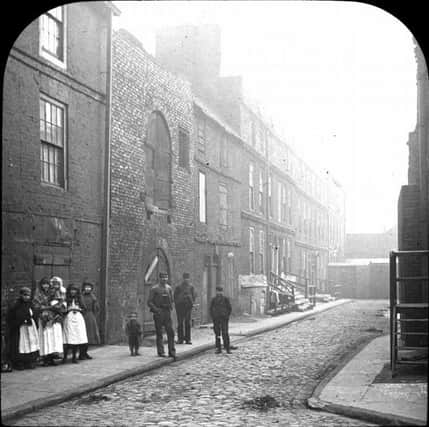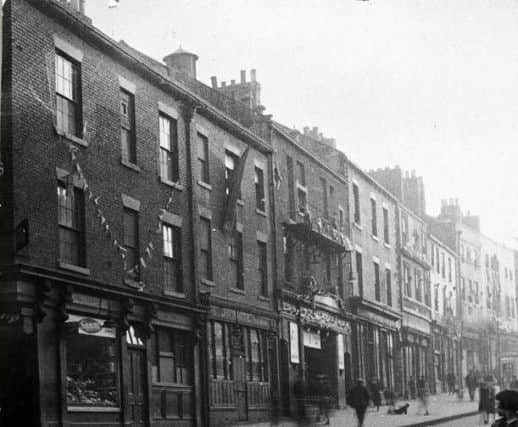Carpenter suffered agonising death after downing deadly cocktail


For 32-year-old Gustav Emil Paul Rhuback died just days after dipping a handful of matches in water and then drinking the liquid.
“He said he did it out of ‘daftness’, but it was a terrible way to go,” said historian Norman Kirtlan, author of Fetch the Black Maria.


Advertisement
Hide AdAdvertisement
Hide AdGerman-born Gustav had adopted Sunderland as his home - settling into life at Charles Street with wife Rosannah and Russian father-in-law Gottfried Miller.
But, despite being a hard-working man who loved his family, one “silly” choice would end his life - and make headlines in the Echo.
“The early weeks of 1892 saw Gustav complaining constantly about pains in his side. He was not at all well,” Norman reveals in his book.
“Indeed, according to Rosannah, he had started “raving incoherently” on several occasions - causing her to fear for her old man’s sanity.”


Advertisement
Hide AdAdvertisement
Hide AdEventually, after Gustav continued to moan about his pain, Rosannah was forced to call for Dr Wood - who arrived at their East End digs minutes later.
When asked if Gustav had been doing anything strange, other than raving, she replied, “Oh yes, doctor. He’s been steeping matches!”
“Anything else?” enquired the medic. “Saying funny things,” Rosannah informed him: “Like he was going to drown himself.”
After writing up some notes, Dr Wood visited his bed-ridden patient - asking yet more questions to try and pinpoint the cause of Gustav’s pain.
Advertisement
Hide AdAdvertisement
Hide AdBut the carpenter, despite being in agony and clutching at his stomach, took some persuading to tell the truth.
“He denied having anything to eat or drink, but was met with choruses of, “tell the truth”, from his missus and in-laws,” said ex-police inspector Norman.
“Reluctantly, he then admitted he had indeed consumed a drink the previous Friday. The contents of the drink, however, left the doc with raised eyebrows.”
A sheepish Gustav revealed he had “steeped some fuses (matches) and drank the water”. Dr Wood looked puzzled before asking: “Now why did you do that?”
Gustav shrugged and muttered “For daftness”.
Advertisement
Hide AdAdvertisement
Hide Ad“The steeping of matches, and the drinking of its subsequent liquid residue, can only mean one thing. Phosphorus!” said Norman.
“In 1858, the new ‘strike anywhere’ match became the latest, must-have accompaniment for smokers. Factories sprang up all over, offering jobs to young girls coating sticks of wood with the chemicals required for combustion.
“A new disease was soon raging, one that brought horrendous pain and facial disfigurement; Phossy Jaw. And for those with an inclination towards suicide, the phosphorus content of the match head was an ideal source of a chemical which caused death.
“But it was a long, and painful, death.”
Despite Gustav’s admission, Dr Wood - for reasons known only to himself - decided not to treat him for phosphorus poisoning. Instead, he attributed Gustav’s pain to the whisky he had used to swill down the concoction.
Advertisement
Hide AdAdvertisement
Hide AdIndeed, over the next few days Gustav appeared to pull around but, on the third day - March 1, 1892 - the poor man lay dead when the doctor arrived for his house call.
“The inquest into Gustav’s death made much of the fact that Mr and Mrs Rhuback had recently insured themselves for the princely sum of £19, but foul play was ruled out,” said Norman.
“The eventual cause of death was attributed to gastritis, but one thing is for certain – with over 100 pubs within spitting distance, Gustav must have been a strange man indeed to prefer 30 matchsticks soaked in water to a pint of Double Maxim.”
l Fetch the Black Maria, by Norman Kirtlan, is available from Sunderland Antiquarian Society at £10. The group is based at 6 Douro Terrace, Sunderland, SR2 7DX. It is open to visitors and family history researchers on Wednesdays and Saturdays from 10am-noon.